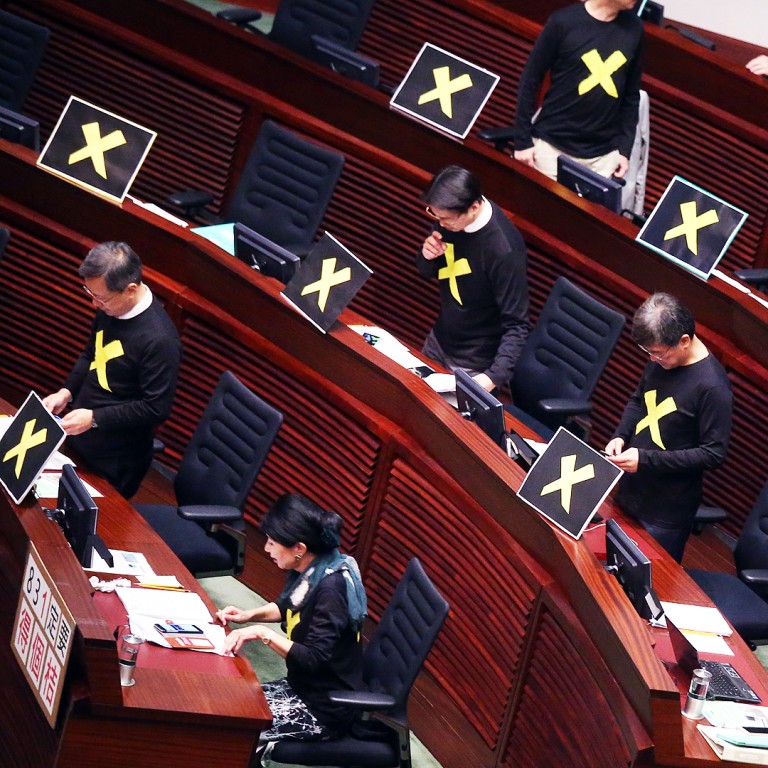
Beijing academic calms fears of punishment for Hong Kong pan-democrats if reform package voted down
A leading mainland expert on the city's affairs dismissed concerns that Beijing would punish Hong Kong, or the pan-democrats, if the 2017 chief executive electoral reform was voted down.
Professor Rao Geping , a member of the Basic Law Committee and a law scholar at Peking University, also believed the central government would not make any late concession on the stringent framework it laid down last year because the nominating committee was designated to "screen out" candidates who might confront Beijing.
The issue at stake is no longer about whether to have democracy or not ...
During a dialogue with lawmakers in Shenzhen last week, top mainland officials overseeing Hong Kong affairs warned that the pan-democrats would face dire consequences should they vote down the reform blueprint when it is put to a vote in the Legislative Council later this month.
The officials also said the lawmakers' voting decision on the reform would show their loyalty to "one country, two systems".
However, speaking at a forum in Hong Kong yesterday, Rao said: "How would the central government find Hong Kong as a whole is confronting her just because of several lawmakers blocking the reform? [It] will not."
Under the framework set by the National People's Congress Standing Committee in August, only two or three candidates can stand for the top job in a city-wide vote. They will need majority support from a 1,200-member nominating committee.
All 27 pan-democrats have vowed to block the reform in the Legco vote because the proposal failed to give Hongkongers a genuine choice.
Rao said the committee was designed in the Basic Law to select candidates who would not confront Beijing and would be faithful to both Hong Kong and the central government.
"How to screen out [the candidates]?" he said. "This process is not done by the central government … but to be done locally by the nominating committee in the first place."
Rao added that political reform had become a scramble for the right to govern the city between the patriotic camp against opponents of Beijing.
"The issue at stake is no longer about whether to have democracy or not, but about whether to uphold the principle of 'one country, two systems' and obedience to the central government," he said.

